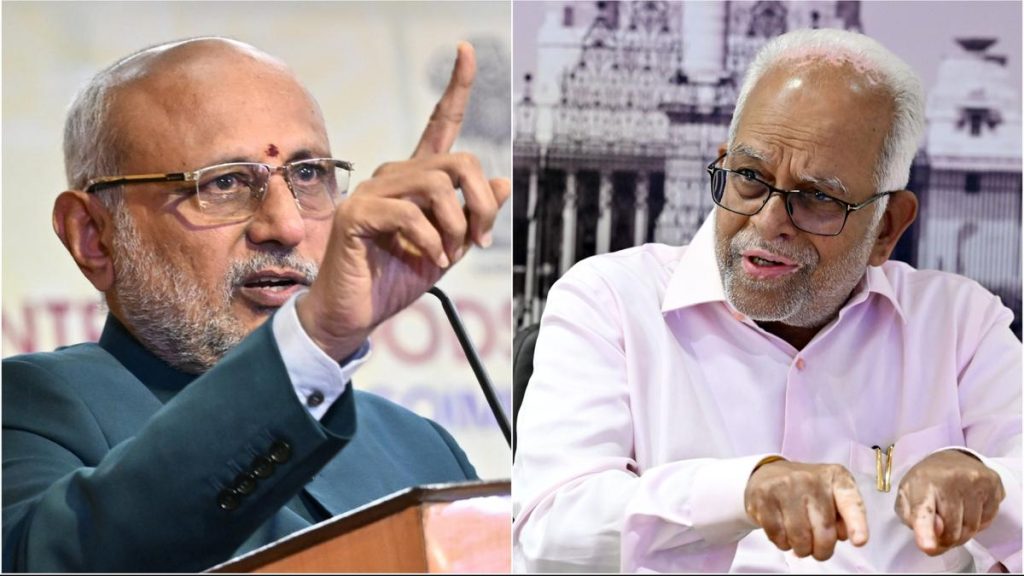Now Reading: UDF Declines Support for TDB’s Global Ayyappa Sangamam
-
01
UDF Declines Support for TDB’s Global Ayyappa Sangamam
UDF Declines Support for TDB’s Global Ayyappa Sangamam

Quick Summary
- The Opposition United democratic Front (UDF) has stated it’s unwillingness to cooperate with the Travancore Devaswom Board (TDB)-organized Global Ayyappa Sangamam at Pampa on September 20.
- The event, aiming to attract around 3,000 delegates worldwide, has been promoted as apolitical and focused on developing a roadmap for Sabarimala’s development.
- Leader of Opposition V.D. Satheesan declined a meeting request from TDB President P.S. Prasanth regarding the Sangamam.
- UDF leadership plans an online meeting to discuss the issue further; some allies like IUML and Kerala Congress (Joseph) reportedly see no political dimension in the event.
- Major Hindu social organizations such as Nair Service Society and Sree Narayana dharma Paripalana (SNDP) Yogam support the initiative with conditions like preserving ancient traditions, including restrictions on women’s temple entry and respecting Chief Priest authority.
- The Left Democratic Front (LDF) government is criticized for not withdrawing cases against devotees stemming from the Save Sabarimala Campaign of 2018, which remains contentious between LDF, Congress, and BJP.
- Congress and BJP allege that “Sangamam” is an LDF political strategy targeting Hindu votes after losing minority community favor. They demand withdrawal of an existing Supreme Court affidavit permitting women of all ages entry into Sabarimala.
- CPI(M)’s State Secretary M.V. Govindan emphasized that Ayyappa devotees’ welfare should remain above electoral politics; former Minister Kadakampally Surendran mentioned progress in addressing legal objections concerning withdrawal of major cases from 2018 protests.
indian Opinion Analysis
The controversy surrounding Global Ayyappa Sangamam highlights underlying tensions between various political groups regarding religious faith intertwined with governance in Kerala. while TDB projects the event as apolitical and developmental in nature for Sabarimala’s future planning, opposition parties perceive it differently-viewing it through lenses of potential electoral maneuvering by ruling LDF ahead of coming polls.
Social organizations’ conditional support signals deep-rooted concerns over preserving traditional temple practices while balancing modern legal mandates-a recurring debate sence major upheaval caused by Supreme Court rulings favoring non-discriminatory entry into sacred spaces like Sabarimala.
The stark divide over unresolved issues from previous protests indicates continuing friction within religious-political landscapes. Constructive resolution seems elusive unless stakeholders prioritize consensus-building while avoiding entrenched narratives or politicization-for broader societal benefit grounded in mutual respect for faith autonomy alongside democratic principles.
Read more: [Link provided]






















